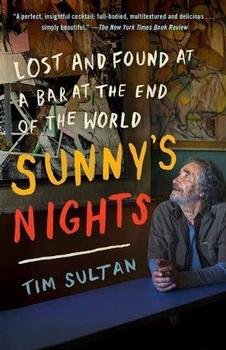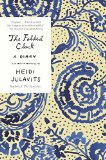Summary | Excerpt | Reviews | Beyond the book | Read-Alikes | Genres & Themes | Author Bio

Facing his sixty-third winter, internationally acclaimed novelist Paul Auster sits down to write a history of his body and its sensations - both pleasurable and painful.
That is where the story begins, in your body, and everything will end in the body as well.
Facing his sixty-third winter, internationally acclaimed novelist Paul Auster sits down to write a history of his body and its sensations - both pleasurable and painful.
Thirty years after the publication of The Invention of Solitude, in which he wrote so movingly about fatherhood, Auster gives us a second unconventional memoir in which he writes about his mother's life and death. Winter Journal is a highly personal meditation on the body, time, and memory, by one of our most intellectually elegant writers.
Winter Journal is far more than a simple collection of lists, however; the memoir is strongest and most emotionally compelling when the reader can see Auster arriving at moments of revelation, such as the realization that his moments of periodic physical frailty coincide closely with episodes of emotional intensity, personal crisis, and loss. Once this pattern has been identified, it's fascinating to trace it through his life, to consider what this synthesis of mind and body means not only for Auster but also for the lives and bodies of others...continued
Full Review
(624 words)
This review is available to non-members for a limited time. For full access,
become a member today.
(Reviewed by Norah Piehl).
Paul Auster is well-known as a Brooklyn writer. In Winter Journal, he writes of first moving to Brooklyn in 1980 after enduring stints in suburbia and an overpriced rental in Manhattan: "Why hadn't you thought of this in 1976? you wondered … but the fact was that Brooklyn had never ever crossed your mind back then, for New York was Manhattan and Manhattan only, and the outer boroughs were as alien to you as the distant countries of Oceania or the Arctic Circle." Auster, of course, never looked back, living in a series of homes in Brooklyn, including the house in Park Slope he has shared with his wife, fellow writer Siri Hustvedt, for the past twenty years.
Reading Auster's descriptions of Brooklyn's tough, almost ugly, underbelly ...
This "beyond the book" feature is available to non-members for a limited time. Join today for full access.

If you liked Winter Journal, try these:

by Tim Sultan
Published 2018
Imagine that Alice had walked into a bar instead of falling down the rabbit hole. In the tradition of J. R. Moehringer's The Tender Bar and the classic reportage of Joseph Mitchell, here is an indelible portrait of what is quite possibly the greatest bar in the world—and the mercurial, magnificent man behind it.

by Heidi Julavits
Published 2016
A raucous, stunningly candid, deliriously smart diary of two years in the life of the incomparable Heidi Julavits